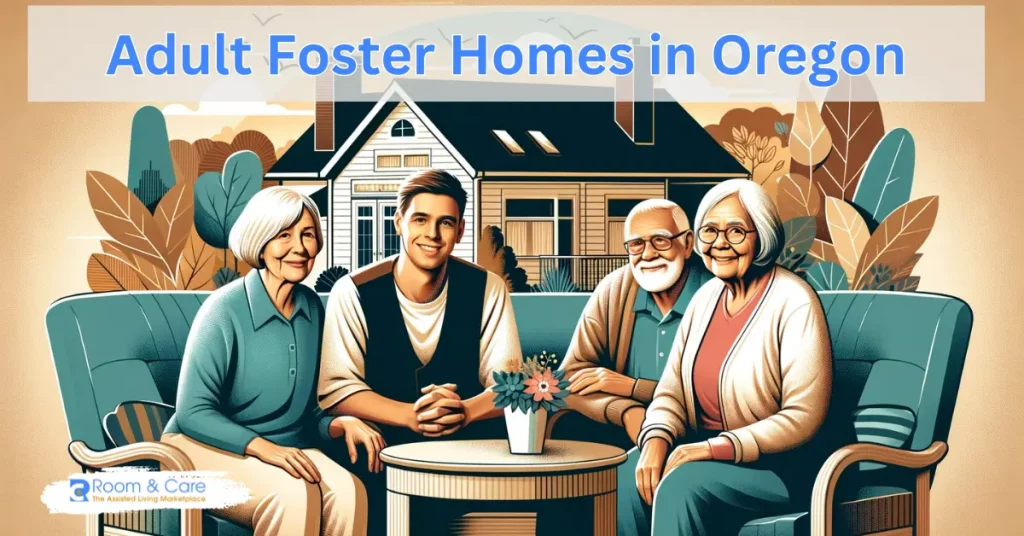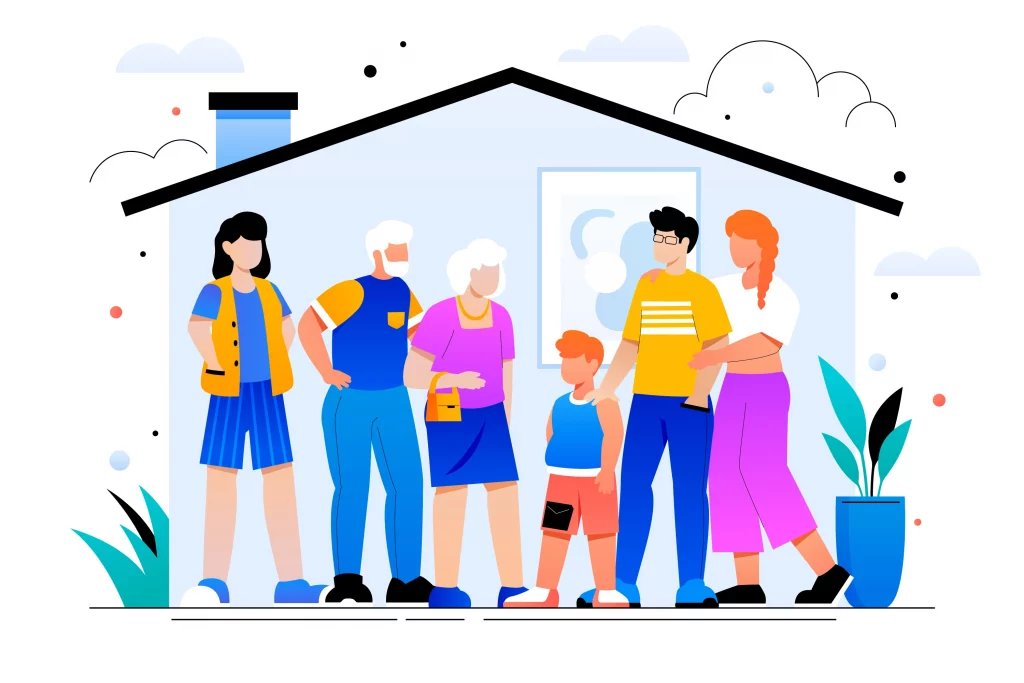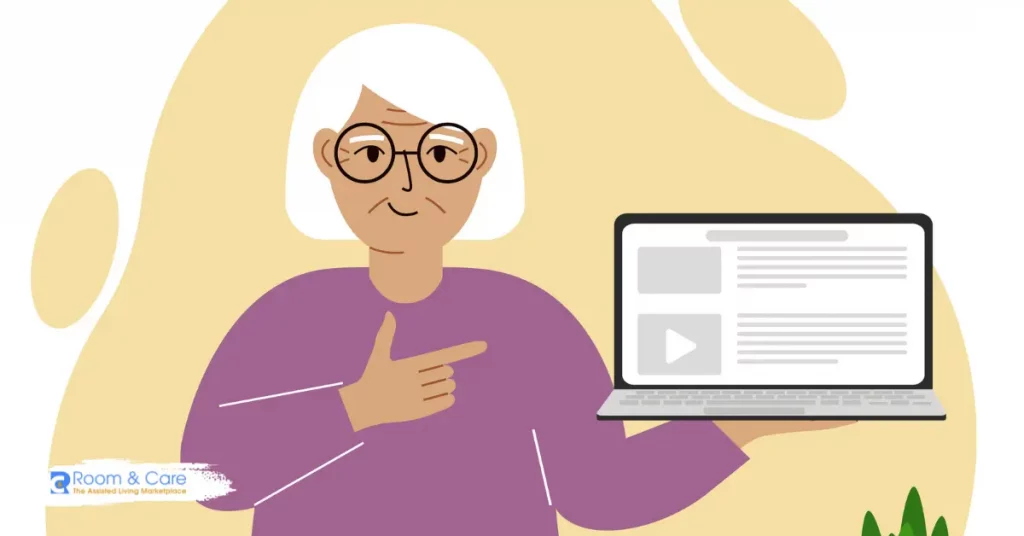

Oregon, celebrated for its stunning natural beauty and rich cultural diversity, has increasingly become a preferred destination for seniors seeking high-quality elder care. Among the various options, Adult Foster Homes (AFHs) emerge as a distinctive and compelling choice. These homes are essentially smaller residential care facilities, typically accommodating up to 5 residents. This smaller scale allows for a high degree of personalized care and attention, setting them apart in the realm of senior living options.
In this article, we aim to provide an in-depth exploration of Adult Foster Homes in Oregon, shedding light on their critical role in senior living and elder care. We’ll uncover the unique attributes that render these homes an attractive option for many, focusing on the personalized care approach and the nurturing community atmosphere they offer. Additionally, we’ll discuss the key factors to consider when selecting an AFH, ensuring individuals and families are well-informed in making this significant decision.
As of 2021, the landscape of Adult Foster Homes (AFHs) in Oregon has undergone notable changes. There were a total of 1,354 AFHs, marking a significant decrease of 22% from the peak of 1,740 AFHs in 2016. This downward trend can be attributed to several factors, which might include shifting preferences of AFH owners towards serving different client types, challenges in balancing care costs with Medicaid reimbursement rates, and retirements among long-standing AFH owners. Additionally, the COVID-19 pandemic may have played a role in exacerbating these trends, impacting the operation and sustainability of these homes.
Regarding the capacity and distribution of AFHs:
Financial Aspects and Cost Implications
The cost aspect of AFHs in Oregon varies significantly between Medicaid beneficiaries and private payers:
For Medicaid beneficiaries, as of January 2022, the base monthly rate for AFHs, inclusive of room and board, was set at $2,543.
Private payers faced a different cost structure. The estimated average annual charge was approximately $54,324, based on the lowest service level’s average monthly rate. Notably, between 2016 and 2022, average total monthly charges escalated from $3,774 to $4,527. This increment represents a 20% increase in real dollar terms.
The average monthly charges also varied regionally, ranging from $4,194 in Southern Oregon/South Coast to $4,721 in the regions East of the Cascades.
This cost variance highlights the importance for potential residents and their families to carefully consider their financial planning when selecting an AFH, especially given the differences in rates between Medicaid and private pay options.
The data underscores that, although the number of AFHs and their overall capacity in Oregon has seen a decline, they continue to be a crucial element in providing care to the senior population and people with disabilities. These homes offer both Medicaid-funded services and private-pay options, adapting to the evolving needs and financial capacities of Oregon’s diverse communities. As such, AFHs remain a significant, though evolving, facet of Oregon’s elder care landscape.

Oregon’s Adult Foster Homes (AFHs) are often characterized by their diverse physical structures, reflecting the state’s varied architectural styles. These homes range from traditional single-family houses to custom-built facilities, each designed to provide a comfortable and safe living environment for residents. The typical AFH in Oregon tends to be smaller and more intimate compared to larger institutional care facilities, accommodating a maximum of 5 residents. This smaller scale fosters a homelike atmosphere, making it easier for residents to adapt and feel at ease.
In line with Oregon’s regulatory requirements, AFHs are equipped with necessary modifications to ensure accessibility and safety for seniors and individuals with disabilities. These adaptations often include wheelchair ramps, grab bars in bathrooms, widened doorways, and emergency response systems. The focus is on creating an environment that is not only physically safe but also supportive of the residents’ varying mobility and health needs.
One of the hallmarks of Oregon’s AFHs is the emphasis on personalized care. Given the smaller resident-to-staff ratio, caregivers in AFHs can provide more individualized attention and tailor their services to meet each resident’s specific needs. This approach covers a wide range of care, from basic assistance with daily activities like bathing, dressing, and eating to more specialized medical and therapeutic services.
Caregivers in Oregon’s AFHs are required to undergo rigorous training and certification processes, ensuring they are well-equipped to handle the diverse needs of their residents. This training includes not only medical and caregiving skills but also focuses on emotional and psychological support, which is crucial in fostering a nurturing environment for seniors.
Amenities in Oregon’s AFHs are designed to enhance the quality of life for residents. These may include common areas for socializing, gardens or outdoor spaces, and various recreational facilities. Many homes also provide access to internet and cable TV, aligning with the modern lifestyle demands of seniors.
In addition to standard care services, many AFHs in Oregon offer specialized programs tailored to residents with specific needs. This includes memory care programs for individuals with Alzheimer’s or other forms of dementia, rehabilitative services for those recovering from surgery or illness, and even hospice care. Some offer part time nurses on staff while others are run by a Registered Nurse. They may offer visiting physicians or other visiting practitioners. Furthermore, some homes may offer unique services like pet therapy, music therapy, and other holistic care approaches, catering to the mental and emotional well-being of the residents.
AFHs in Oregon are increasingly focusing on inclusive practices that respect the diverse backgrounds and preferences of their residents. This includes consideration for dietary preferences, cultural practices, and religious observances. Additionally, many homes offer personalized recreational and social programming to ensure that all residents find activities and engagement opportunities that resonate with their interests and abilities.
Adult Foster Homes in Oregon stand out for their homely environments, personalized care approaches, and a wide array of amenities and specialized services. These characteristics collectively contribute to making AFHs a favorable choice for many seniors and their families in Oregon, combining comfort, care, and community in a unique setting.

In Oregon, the qualifications of staff working in Adult Foster Homes (AFHs) are a critical aspect of ensuring quality care. Caregivers are typically required to have certifications in first aid and CPR, along with training in specific areas such as medication management, dementia care, and emergency response. Oregon state regulations mandate ongoing education for AFH staff, ensuring they stay updated with the latest in elder care practices and health management.
One of the advantages of AFHs in Oregon is their favorable caregiver-to-resident ratios. These homes, by design, serve smaller groups of residents, which allows for more individualized attention and a higher level of personal care. With a maximum of 5 residents, homes may have 2 caregivers. This ratio ensures that each resident’s health and daily living needs are adequately met, contributing to a higher standard of care and overall resident satisfaction.
Oregon’s AFHs are known for their ability to provide specialized care tailored to the diverse needs of their residents. This includes not only physical health care but also addressing cognitive and emotional needs. Many homes specialize in caring for residents with Alzheimer’s and other forms of dementia, offering structured programs that promote cognitive health and emotional well-being.
Life in an Adult Foster Home in Oregon is designed to strike a balance between providing necessary care and maintaining a vibrant, fulfilling lifestyle for residents. A typical day might include a variety of activities such as group exercises, arts and crafts, gardening, or social events. Meals are often communal affairs, providing opportunities for social interaction and community building.
Community life is a cornerstone of the AFH experience in Oregon. These homes often foster a sense of family among residents and staff, with shared living spaces and communal activities that encourage interaction and relationship building. This community-centric approach is pivotal in promoting the emotional and social well-being of residents.
Another key feature of Oregon’s AFHs is the personalization of care and daily routines. Residents often have the flexibility to choose their activities, meals, and daily schedules, reflecting their preferences and independence. This level of personalization ensures that each resident’s lifestyle and care plan is as unique as they are, fostering a sense of autonomy and dignity.

If you or a loved one encounters any issues or concerns with an Adult Foster Home in Oregon, it’s crucial to know the steps to file a complaint effectively. Ensuring the safety and well-being of residents in these homes is a top priority, and the state of Oregon provides clear channels for addressing grievances.
The first and immediate point of contact for any complaint regarding an Adult Foster Home is the statewide abuse hotline. This hotline is dedicated to receiving reports of abuse or neglect in various care settings, including Adult Foster Homes.
Statewide Abuse Hotline: 855-503-SAFE (7233)
This hotline is operational 24/7 and is staffed by trained professionals who can take your complaint and initiate the necessary investigative processes. Whether it’s a case of neglect, abuse, or any other concern about the quality of care or safety, this hotline is your direct line to state support and intervention.
For additional support or if you prefer to speak to someone in person, you can contact your local Office of the Department of Human Services (ODHS). Specifically, you should reach out to the Aging and People with Disabilities office or the Area Agency on Aging. These local offices can provide you with guidance, additional resources, and can help facilitate the complaint process.
Filing a complaint is a vital step in ensuring that Adult Foster Homes maintain high standards of care. It not only addresses the immediate concern but also helps in upholding the overall quality and safety of elder care facilities in Oregon. The state takes these complaints seriously, and each report contributes to the betterment of care provided in these homes.
Remember, your voice is important. By taking action and reporting concerns, you play a crucial role in safeguarding the welfare of some of the most vulnerable members of our community.
Choosing the right Adult Foster Home in Oregon is a journey that involves considering a variety of factors. It’s about finding a balance between the quality of care, the comfort of the living environment, and financial feasibility. While exploring options, it’s important to take a holistic view, looking at the overall experience and support each home offers.
In the quest to find the most suitable AFH, leveraging diverse resources is key. This includes online platforms, state resources, and direct visits to potential homes. Platforms like Room & Care can be a part of this mix, offering a convenient way to discover available rooms and connect directly with facilities. Their direct booking model can offers financial benefits, as they bypasses the hefty referral fees commonly associated with traditional placement agencies.
Nothing compares to personally assessing each potential home. Visiting homes, interacting with staff and residents, and getting a feel for the daily life and atmosphere are crucial steps. These visits can provide insights that go beyond the information found in brochures or websites.
A critical aspect of choosing an AFH is understanding the financial commitment involved. It’s essential to discuss costs transparently with the facility administrators, including inquiring about any potential future increases or additional charges for special care or services.
Ensuring that the AFH complies with Oregon’s state regulations and standards is non-negotiable. Prospective residents and their families should feel empowered to ask about the home’s licensing, staff qualifications, and how they handle complaints or issues.
While resources like Room & Care should not be the sole tool in your search, they can play a significant role in simplifying the initial stages of finding an AFH. Their advantage lies in providing immediate information on availability and pricing, making the early phase of your search more manageable.
Navigating the landscape of Adult Foster Homes in Oregon requires a multi-faceted approach. It’s about combining personal visits, leveraging diverse resources like Room & Care for initial searches, understanding financial implications, and ensuring quality and compliance with state standards. By taking this comprehensive approach, families and seniors can find a fitting home that meets their needs for care, comfort, and community.